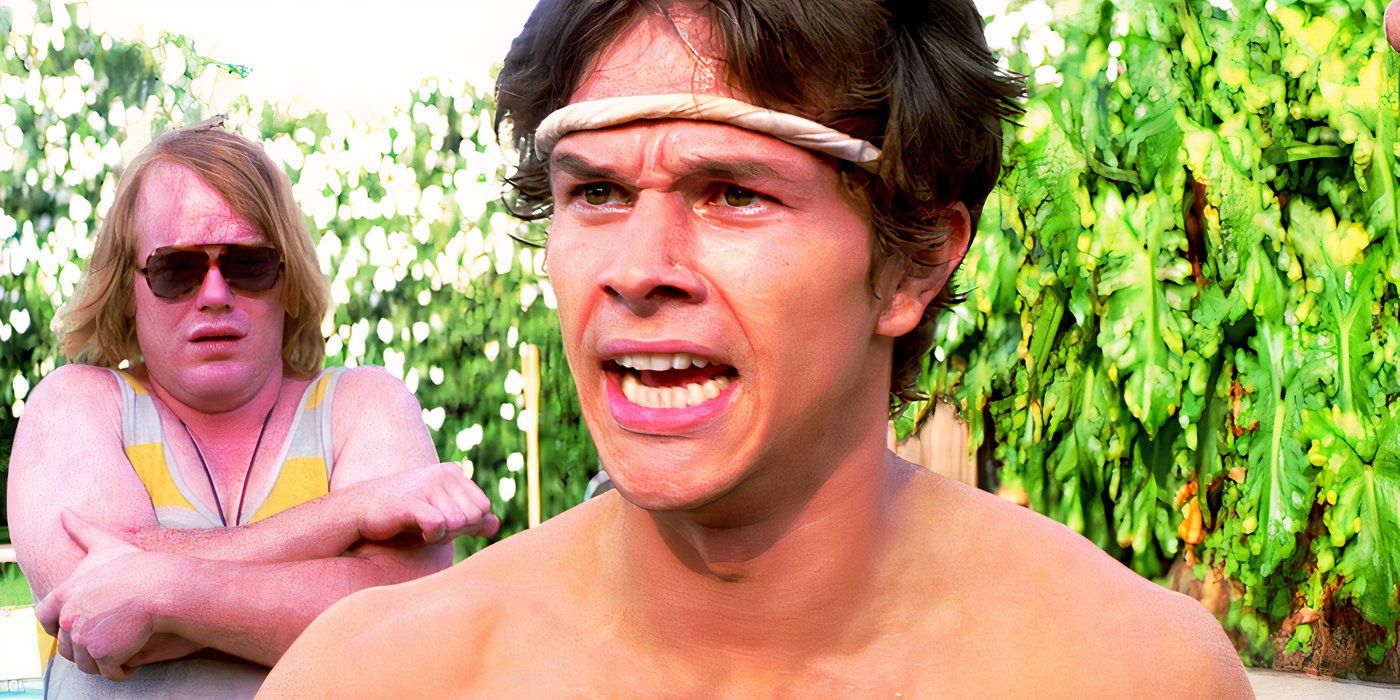Quentin Tarantino is undoubtedly one of the greatest movie directors alive today. Despite his various eccentricities and his strange refusal to make more than 10 movies, fans still love, appreciate, and trust the Pulp Fiction director. The man clearly has filmmaking chops, from the screenplay to the director’s chair, but what is inspiring his works of art? It is a well-known fact that Tarantino loves spaghetti westerns, classic Hollywood horror, and gratuitous violence, but his opinions on his contemporaries are largely unknown. One movie that he has voiced his opinion on, however, is a 28-year-old drama from a talent that even a snob like Tarantino can’t deny.
Boogie Nights is a 1997 ensemble drama set in the high-stress world of the porn industry. The film was directed by one of Tarantino’s closest contemporaries, Paul Thomas Anderson, and was coincidentally released only two months apart from Jackie Brown. With the help of a fantastic cast featuring Burt Reynolds, Mark Wahlberg, Julianne Moore, Philip Seymour Hoffman and Don Cheadle, PTA crafts a sprawling and immersive experience like none other. The film was a critical smash, an awards star, and a box office success, but no accolade feels as good as the Quentin Tarantino co-sign. Boogie Nights is one of his favorite films ever made, and it’s easy to see why.
What Is Boogie Nights?
It defies all logic, but Boogie Nights is the sophomore effort from Paul Thomas Anderson. At only 27 years old, the visionary filmmaker was given not only a budget of $15 million but also the opportunity to direct a feature film version of a mockumentary he made at the age of 18. This film is Anderson’s follow-up to his 1996 directorial debut, Hard Eight, and despite that movie being fantastic in its own right, Boogie Nights is bigger and better in every conceivable way. The Mark Wahlberg-led film is a stinging analysis of a harsh and brutal industry, an offbeat found family coming-of-age story, a makeshift comedy, and also the perfect encapsulation of what PTA’s career would become.
Boogie Nights is a sprawling ensemble drama that primarily follows the rise and fall of Eddie Adams (Mark Wahlberg), a well-endowed busboy with a charming personality. One night, Eddie is discovered and recruited by the seemingly warm and welcoming adult film director, Jack Horner (Burt Reynolds). Under Jack and his family’s tutelage, and with a new catchy stage name, “Dirk Diggler”, Eddie quickly rises through the ranks of the porn industry, and begins to live a lavish and precarious lifestyle. Along for the ride is a colorful group of performers and crew who each touch Dirk and affect his life in their own way. This crew includes the warmhearted but troubled Amber Waves (Julianne Moore), the dull but loyal Reed Rothchild (John C. Reilly), and the wayward Buck Swope (Don Cheadle).
|
Character |
Actor |
|
Mark Wahlberg |
Eddie Adams / Dirk Diggler |
|
Burt Reynolds |
Jack Horner |
|
Julianne Moore |
Amber Waves |
|
Don Cheadle |
Buck Swope |
|
John C. Reilly |
Reed Rothchild |
|
Philip Seymour Hoffman |
Scotty J. |
|
William H. Macy |
Little Bill |
|
Heather Graham |
Rollergirl |
|
Melora Walters |
Jesse St. Vincent |
Related
10 Most Toxic ’90s Movie Love Interests, Ranked
Although some 90s romances have aged well, there are plenty of characters that exemplify the outdated tropes and stereotypes of the decade.
Dirk’s fame grows to unimaginable heights, and so does his ego. The previously humble and starry-eyed Dirk quickly sees himself falling into the trap of an industry built on fantasy, but it’s too late to turn back. This development leads to conflicts with Jack, desperate attempts to make money, and drug-addled, self-destructive behavior. As time goes on, the industry shifts, and Dirk and his friends all experience some sort of unraveling as they figure out how to move on with their lives.
Boogie Nights is a screenshot of a time that Paul Thomas Anderson didn’t even get to experience firsthand, but it is hauntingly accurate nonetheless. The film chronicles everything from the blissful and excessive rise of its characters to their dreary and depressing downfall. While Paul Thomas Anderson is not afraid to dive into the realm of harsh pessimism with films like There Will Be Blood, Boogie Nights leaves room for redemption for most of its primary characters. The film tries to keep it realistic, with some on the verge of a fruitful life, and some scrapping for the glory days past they can never return to.
Quentin Tarantino Had 1 Major Issue With Boogie Nights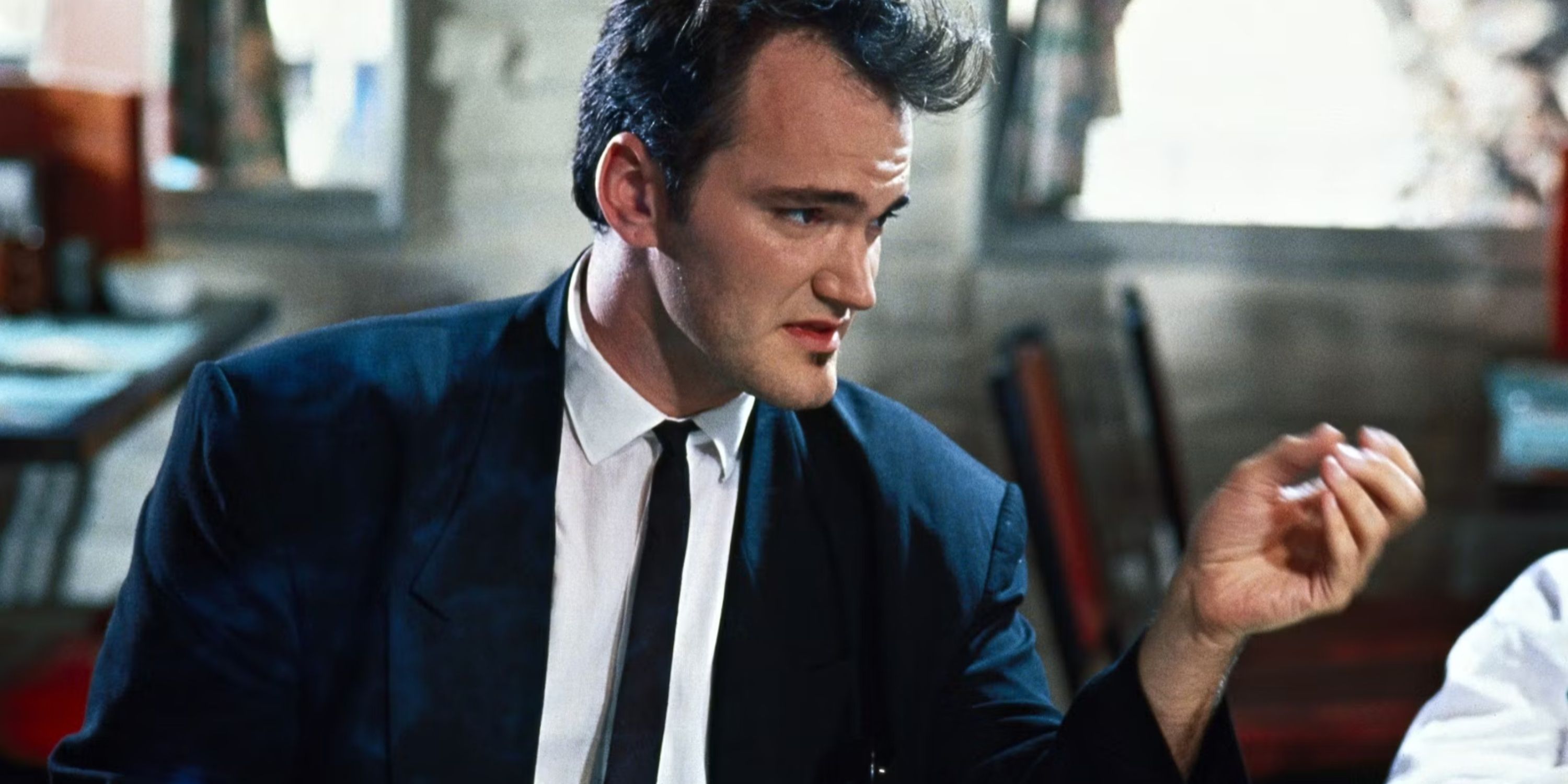
Quentin Tarantino and Paul Thomas Anderson’s careers have been interlocked from the second PTA stepped onto the scene. The glitzy exterior and ensemble nature of their films were immediately compared to each other, and rightfully so. This comparison happened so much that, in 1997, Paul Thomas Anderson reached out to Quentin Tarantino in order to finally formally meet and dispel any sort of media-created rivalry narrative. The pair quickly became friends after that, but their friendship hasn’t stopped Tarantino from voicing his true opinions about any and every film.
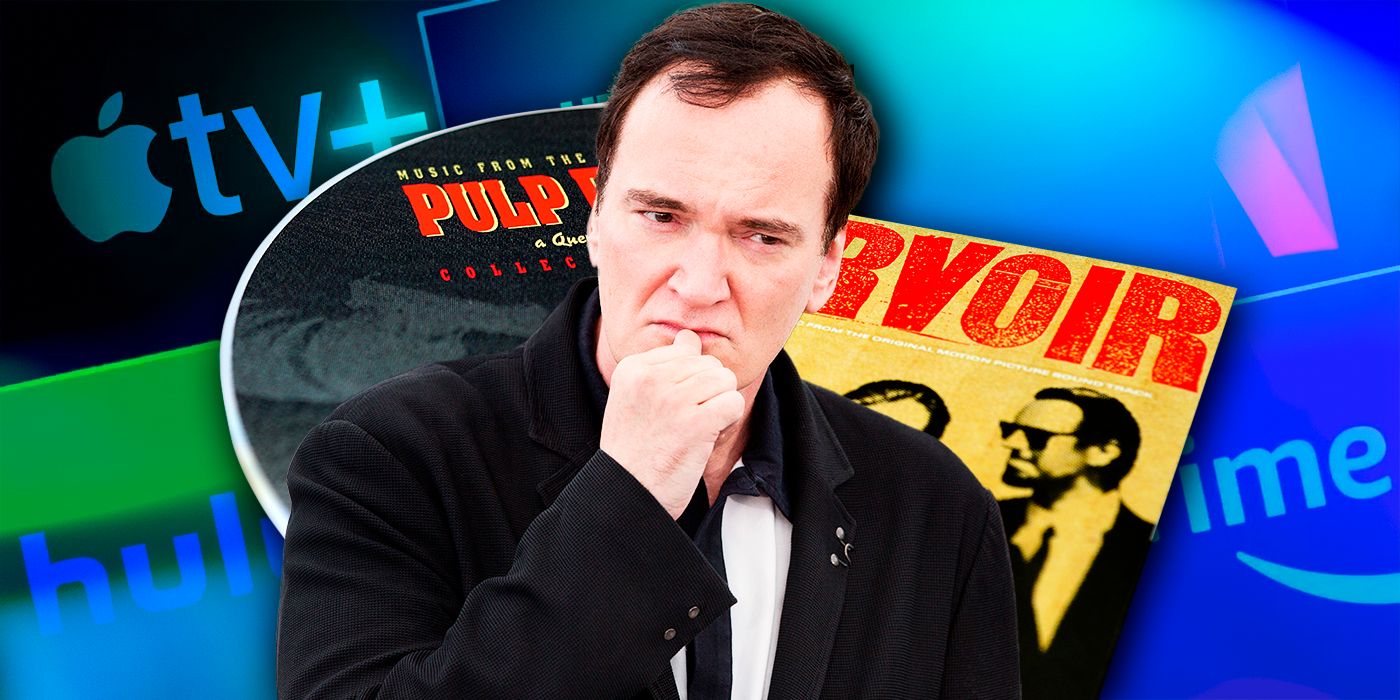
Related
Quentin Tarantino Called Out 1 of Cinema’s Most Problematic Trends (& He’s Absolutely Right)
Quentin Tarantino didn’t mince words when talking about his feelings on streaming.
Quentin Tarantino, who is well-versed in the adult filmmaking sphere, takes issue with the fact that Burt Reynolds’ character is based off of adult film director Gerard Damiano (despite PTA insisting that he isn’t). He takes issue with this because Damiano, despite making socially unacceptable content, was undeniably talented, and Burt Reynolds’ character is not portrayed as such. Tarantino’s issue is incredibly niche and likely not relevant to most viewers, but it does highlight a larger point.
Quentin Tarantino’s favorite film since 1992 is Kinji Fukasaku’s Battle Royale (2000).
Burt Reynolds’ Jack Horner is insistent throughout the entire film that he wants to be a real filmmaker. He looks forward to the future of his team and refuses the industry’s descent into cheap tricks. He constantly waxes poetic about the artistic process and demonstrates that he understands what it takes to be a good director, but does so while making what can only be described as slop. The cop film starring Dirk and Reed that he makes halfway through the film, for example, is completely devoid of the artistic sensibilities that a director of Damiano’s caliber would have, but Jack touts that it’s his “best film yet.” While Tarantino’s reasoning is a bit complex, he is correct that Jack Horner is a walking contradiction, despite the brilliant Burt Reynolds performance.
Even with this one glaring issue, Tarantino still contends that Boogie Nights is one of the greatest films ever made. Aside from the obvious favorites, like The Good, The Bad, and The Ugly, Blow Out, and Rio Bravo, Quentin Tarantino’s favorites are full of questionable and imperfect efforts. There are plenty to choose from, but one of the most confusing entries in his list of favorite films is Woody Allen’s Anything Else, which ranks among the lowest-rated films in the illustrious director’s catalog. It is obvious that Tarantino has brilliant filmmaking sensibilities, but the jury is still out on whether or not his taste can be trusted.
Paul Thomas Anderson’s Filmography Is Full of Gems
While Tarantino’s taste is up for debate, he is undoubtedly correct about Boogie Nights. PTA’s sophomore effort is one of the greatest dramas ever made, and it might not even be at the top of Anderson’s filmography ranking. The yet-to-be-awarded director has been cranking out masterpieces since 1996’s Hard Eight. Whether it’s his sprawling mosaic, Magnolia, his offbeat romantic comedy efforts, Punch-Drunk Love and Licorice Pizza, or his haunting dramas, The Master and There Will Be Blood, every single entry in his filmography has a fair argument to be the best.
Paul Thomas Anderson cites Robert Altman, Jonathan Demme, and Martin Scorsese as three of his main inspirations.
Paul Thomas Anderson is not only loved by film buffs, as he is also highly respected by his peers. In 2022, BFI conducted this decade’s Sight & Sound poll, which polled hundreds of critics and directors, in an attempt to figure out the greatest film of all time. Out of all directors in the history of cinema, Anderson came in 17th place with 91 mentions in the poll. His votes were widely spread across his filmography, resulting in none of his films placing that highly, but the vote distribution alone is a testament to the impressive consistency of the man’s catalog.
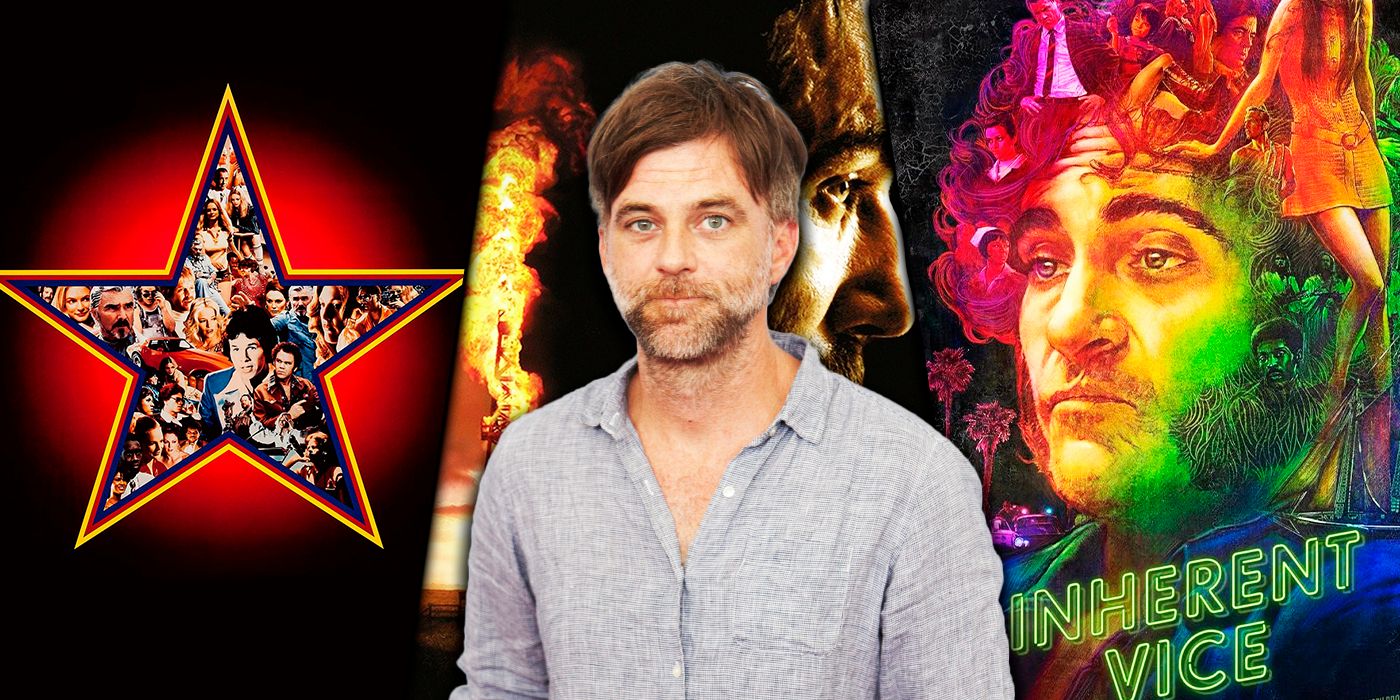
Related
Every Paul Thomas Anderson Movie, Ranked
Paul Thomas Anderson has delivered some fantastic films over the years, but some stand out far more than others.
In terms of his films’ critical reception, Paul Thomas Anderson has always been a bit of a critical darling. On platforms like Rotten Tomatoes, Anderson routinely scores a certified fresh rating, with 8 of his 9 films receiving the honorable distinction. The only exception to this certified fresh trend is also the only film of Anderson’s to receive a “rotten” audience rating. This film is his 2014 effort, Inherent Vice, which challenged audiences with the difficult prose of celebrated author Thomas Pynchon.
Unfortunately for those less than satisfied fans, Anderson’s upcoming film, One Battle After Another, is yet another loose Thomas Pynchon adaptation. While the critical reception for Inherent Vice may have been a bit of a disappointment, fans should nonetheless place their faith in Paul Thomas Anderson, as he has repeatedly proved his versatility. Quentin Tarantino and those polled by BFI don’t praise easily, so fans should believe it when they say Paul Thomas Anderson is one of the greatest filmmakers to ever live.
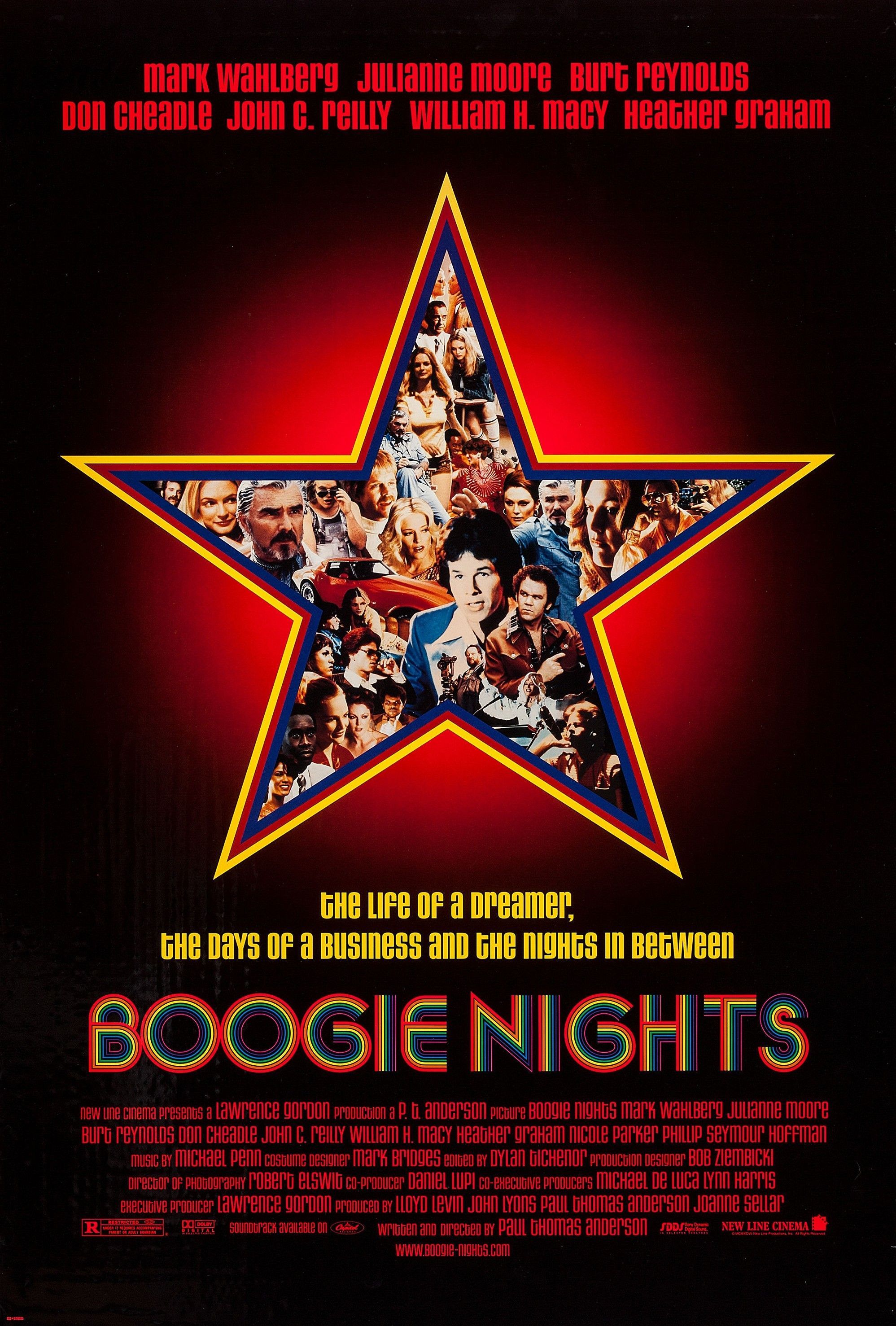
- Release Date
-
October 7, 1997
- Runtime
-
155 minutes
- Director
-
Paul Thomas Anderson
- Writers
-
Paul Thomas Anderson



